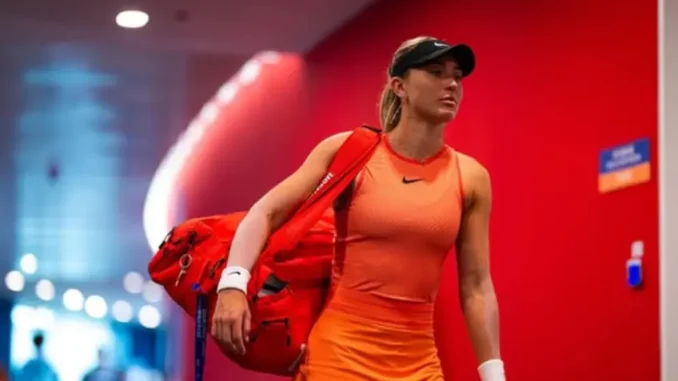
Paula Badosa, the 27-year-old Spanish tennis star once ranked world No. 2, has shared a devastating confession that has left the tennis world reeling: her chronic back injury may force her to retire young, with surgery looming the moment she steps away from the sport. In a raw and emotional interview, the former Indian Wells champion opened up about the relentless pain that haunts her daily life, her resolve to keep playing despite the odds, and the mental toll of living with uncertainty. Her story is one of resilience, passion, and the heartbreaking reality faced by athletes battling career-threatening injuries.
Badosa’s journey has been marked by meteoric highs and crushing lows. After a breakout 2021 season that saw her win Indian Wells and reach the WTA’s top echelons, she was sidelined in 2023 by a stress fracture in her lower back, later diagnosed as a chronic herniated disc with nerve involvement. The injury forced her to miss significant portions of the season, including the Australian Open and French Open, and saw her ranking plummet from No. 2 to outside the top 100. Despite a triumphant 2024 comeback, earning her the WTA Comeback Player of the Year award and a maiden Grand Slam semifinal at the 2025 Australian Open, her back issues have resurfaced with a vengeance. “I know that I am going to retire young and the next day I will go straight to the operating room,” Badosa admitted, her voice heavy with acceptance. “Having such a strong character has helped me accept this over time.”
The physical and emotional toll of her condition is staggering. Badosa relies on painkillers and cortisone injections to compete, fully aware that delaying surgery could jeopardize her long-term health. “I have told [my doctors] many times: until you operate on me and there is no longer a solution, I will continue with the injections, even knowing how bad they feel for me and how harmful they are to the body,” she said. The pain, which she describes as a “hernia that has moved” and now affects her nerves, disrupts her ability to lead a normal life. “Every day I wake up afraid,” she revealed. “This week I had to send messages to [my team] at 05:00 in the morning because I couldn’t sleep, I can’t with the question of whether my back will be fine that day.”
Despite the agony, Badosa’s passion for tennis fuels her determination to continue. “Tennis gives me a lot, day-to-day life, I’m so passionate about it,” she said. “If they tell me to stop at 30 or 32, then fine, but if I can endure it in some way, then I’m going to try.” Her recent withdrawal from the Madrid Open and a mid-match retirement at the Merida Open against Daria Saville underscore the precariousness of her situation. Yet, she remains focused on competing at the Italian Open in Rome, hoping to defy her body’s limitations and reclaim her place among the elite.
Badosa’s story resonates beyond the court, highlighting the unseen struggles athletes endure. Her candidness about her mental anguish—exacerbated by sleepless nights and the fear of a pain-free life slipping away—has inspired fans and peers alike. “I’ve definitely taken it in,” she said, reflecting on her resilience. Her relationship with fellow pro Stefanos Tsitsipas and her role as a mentor to her younger sister Jana provide emotional anchors, but the specter of early retirement looms large. As she sets her sights on Roland Garros, where she won the junior title in 2015, Badosa’s fight to prolong her career is a testament to her indomitable spirit, even as she prepares for the inevitable surgery that awaits.
Leave a Reply